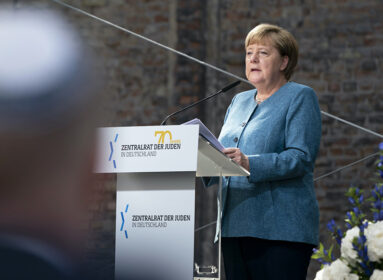
By Uriel Heilman
NEW YORK (JTA) – After Marco Rubio’s strong performance in last week’s Republican primary debate, which aired on CNBC, many Americans are taking a second look at the U.S. senator from Florida. Here are a few things American Jews might want to know about him.
1. Rubio had humble beginnings – and rose quickly
The junior senator was born in Miami in 1971 to Cuban parents who moved to the United States in 1956 and later found work in bartending and housekeeping. After high school, Rubio paid for his first year of college with a football scholarship and then took out student loans. Rubio later repaid $100,000 in student debt out of the $800,000 advance he received for his 2012 book, An American Son. While studying law at the University of Miami in the mid-1990s, Rubio interned for Rep. Ileana Ros-Lehtinen, R.-Fla., the first Cuban American elected to Congress and a staunch supporter of Israel. Rubio won election in 2000 to the state legislature, the Florida House of Representatives, and became its youngest-ever speaker in 2005. In 2010, Rubio was elected to the U.S. Senate, defeating Florida’s governor, Charlie Crist.
2. Rubio’s biggest patrons are active in the Jewish community
Billionaire auto dealership magnate Norman Braman, a past president of the Greater Miami Jewish Federation, isn’t just the single-largest backer of Rubio’s presidential campaign. Braman also helped finance the young senator’s legislative agenda, employed Rubio as a lawyer, hired Rubio’s wife as a philanthropic adviser, helped fund Rubio’s position as a college instructor and assisted Rubio with his personal finances. In 2010, Braman and Rubio went to Israel together shortly after Rubio’s election to the U.S. Senate.
Following the CNBC debate, billionaire hedge fund investor Paul Singer announced he is backing Rubio. Singer, who is Jewish and lives in New York, gave more money to Republican candidates and causes last year than any other U.S. donor, according to the New York Times. Several of the candidates in the crowded field were vying for his support.
Politically, Singer is extremely pro-Israel and a proponent of same-sex marriage. He is on the board of the Republican Jewish Coalition and a major donor to The Israel Project.
Rubio may also be the candidate of choice for Jewish casino magnate Sheldon Adelson, who spent between $100 million and $150 million of his estimated $32 billion fortune backing Republicans in the 2012 presidential campaign. Sources close to Adelson told Politico in April that the billionaire likes the Florida senator’s strong stance on defense, including his strident support for Israel.
3. Rubio says Israel should get unconditional U.S. support
Like practically all of his fellow Republican candidates for president, Rubio has taken a hawkish line when it comes to Israel, slamming the Obama administration’s treatment of the country and Israeli Prime Minister Benjamin Netanyahu. “If America doesn’t stand with Israel, who would we stand with? If Israel — a democracy, a strong American ally on the international stage — if they are not worthy of our unconditional support, then what ally of ours around the world can feel safe in their alliance with us?” Rubio said in a Senate speech on March 19.
4. Where is Rubio on issues of concern to Jews?
On domestic issues, Rubio wants to repeal Obamacare, opposes abortion and has waffled on immigration reform. First, as a member of the so-called Gang of Eight, Rubio championed a comprehensive immigration reform bill that would have opened a path to citizenship for some undocumented immigrants. But he backed away from that strategy once the bill failed and instead suggested a more piecemeal approach focusing first on border enforcement. On foreign policy, Rubio is a vocal Israel backer, opposed the Iran nuclear deal and wants stepped-up Iran sanctions and favors a permanent U.S. presence in Iraq to fight the Islamic State. Rubio also opposes the Obama administration’s normalization of ties with Cuba.
5. Rubio went to bat for justice for Alberto Nisman
After the mysterious killing in January 2015 of Argentine prosecutor Alberto Nisman, who was investigating the 1994 terrorist attack on the AMIA Jewish community center in Buenos Aires, Rubio called on Secretary of State John Kerry to establish an independent, international probe into Nisman’s death. Rubio questioned the ability of Argentina’s government to conduct a fair investigation (Nisman had accused Argentine President Cristina Fernandez de Kirchner of impeding the AMIA investigation), prompting a rebuke from Argentina’s government for his meddling and “imperious behavior.”








 Southern New England Jewish Ledger
Southern New England Jewish Ledger








